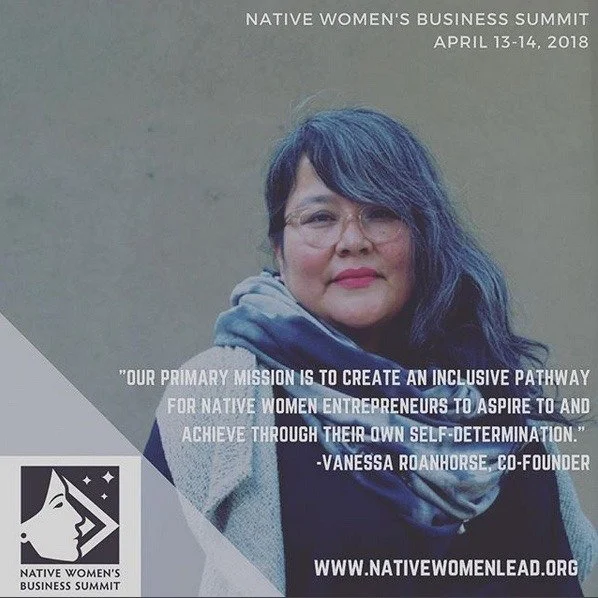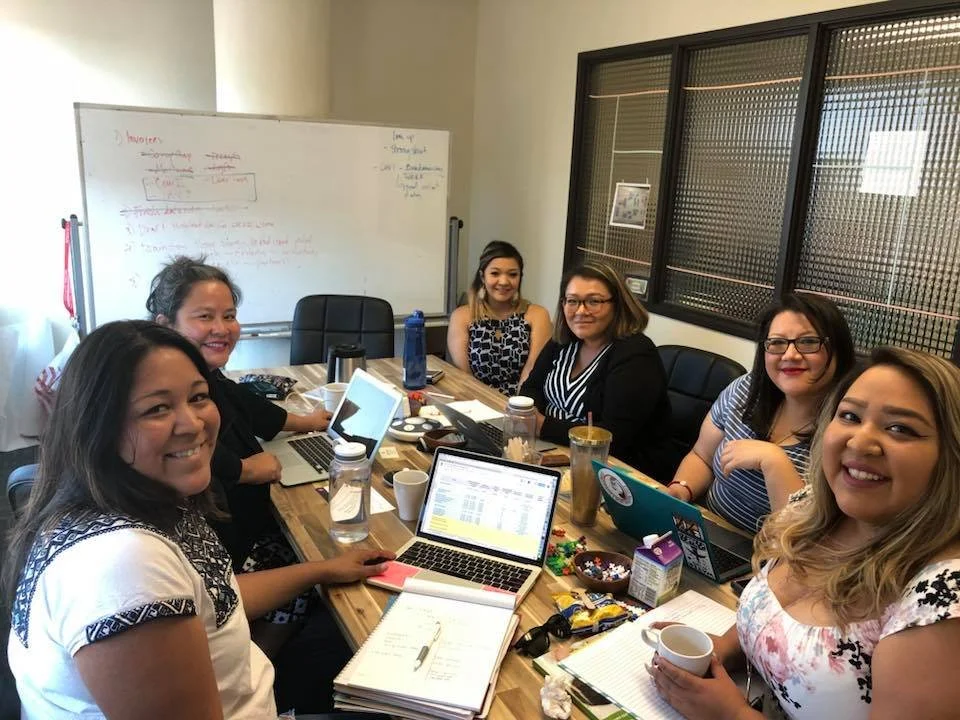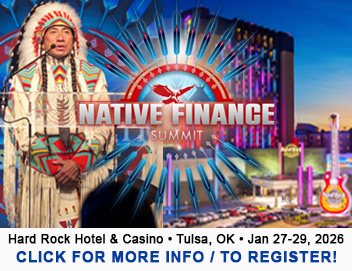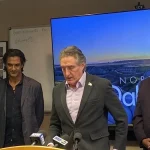 Roanhorse’s powerful yet subversive approach to business is evident in the way she created Roanhorse Consulting as well. Her forthcoming nature toward sharing her bumpy transition from the nonprofit sector to building a business shouldn’t come as a surprise. Authenticity is her brand.After 15 years of working in the nonprofit sector in Chicago, Roanhorse returned to Albuquerque, anticipating she’d land a job quickly. “An absolute cornerstone during her tenure at Delta Institute,” as a former colleague in Chicago described, she previously managed the nonprofit’s on-the-ground energy efficiency programming, green infrastructure programming, and workforce development training, among other initiatives.But her wealth of experience didn’t land her a job so easily back in Albuquerque. Ultimately, she had to create a job herself. “I am a reluctant entrepreneur,” she told Native Business Magazine. “I mean that in the sense that I got my chops working in the nonprofit sector. When I moved here, I wanted to do similar work to what I did in Chicago—only I wanted to do it with Native people. I could not find a job. With all of my experience, it was a huge challenge.”“I started Roanhorse Consulting out of necessity. I was literally cobbling it together. My first job was working with the City of Albuquerque on their mass transit program. I worked with small businesses that were going to be impacted by this program—to help get loans for these small businesses to stay open. I wanted to incorporate to separate my family assets from everything else. That’s how all of this got started.”
Roanhorse’s powerful yet subversive approach to business is evident in the way she created Roanhorse Consulting as well. Her forthcoming nature toward sharing her bumpy transition from the nonprofit sector to building a business shouldn’t come as a surprise. Authenticity is her brand.After 15 years of working in the nonprofit sector in Chicago, Roanhorse returned to Albuquerque, anticipating she’d land a job quickly. “An absolute cornerstone during her tenure at Delta Institute,” as a former colleague in Chicago described, she previously managed the nonprofit’s on-the-ground energy efficiency programming, green infrastructure programming, and workforce development training, among other initiatives.But her wealth of experience didn’t land her a job so easily back in Albuquerque. Ultimately, she had to create a job herself. “I am a reluctant entrepreneur,” she told Native Business Magazine. “I mean that in the sense that I got my chops working in the nonprofit sector. When I moved here, I wanted to do similar work to what I did in Chicago—only I wanted to do it with Native people. I could not find a job. With all of my experience, it was a huge challenge.”“I started Roanhorse Consulting out of necessity. I was literally cobbling it together. My first job was working with the City of Albuquerque on their mass transit program. I worked with small businesses that were going to be impacted by this program—to help get loans for these small businesses to stay open. I wanted to incorporate to separate my family assets from everything else. That’s how all of this got started.”
“I want people to know the truth about how I got started,” Roanhorse continued. “I think we get stuck on this idea that there is one specific pathway for entrepreneurship, and I think that is wrong. There isn’t this stepping stone process. Being a business owner is this never-ending iteration and evolution of you, your business model, what you want to be, and what you want to do. This isn’t rocket science. The business basics are just tools. It’s your passion and vision that are really where the magic is at.”
Today she maintains consistent work with her first client, the City of Albuquerque. “I’m looking forward to this new administration in Albuquerque and how they focus on raising the voice of minority businesses, small businesses, and localizing economic development,” Roanhorse said.Through another client, Roanhorse Consulting is helping Nusenda Credit Union test a product called Co-op Capital, “which is a lending model that doesn’t rely on collateral, credit or any of those things. We’re piloting them with three organizations—two of which are Native led and serving, and another which is not Native owned but they serve Native populations—to see if we can provide business loans to Native entrepreneurs. We know that Natives often face barriers of having no collateral or bad credit and [thus] can’t get funding. It’s a small pilot, but we’re hoping to make it statewide,” she said.Throughout her storied career, she’s had the chance to work with incredible organizations such as Cultivating Coders, Changing Woman Initiative, ComEd, IDEO, 1871, Center for Neighborhood Technology, ReBuilding Exchange, Living Cities, ICLEI, Urban Sustainability Directors Network, and the Cities of Albuquerque, Chicago, Miami, and the Navajo Nation. Since launching Roanhorse Consulting in January 2016, she’s seen a steady influx of work opportunities and collaborations. “I’ve been very lucky that there is incredible, thoughtful, creative work out there that I have been able to participate in,” Roanhorse said.
Since launching Roanhorse Consulting in January 2016, she’s seen a steady influx of work opportunities and collaborations. “I’ve been very lucky that there is incredible, thoughtful, creative work out there that I have been able to participate in,” Roanhorse said.
“I think some of that has to do with the fact that we don’t see enough Native American women in power or leadership positions. Oftentimes, when people are having discussions about power structures or business opportunities, what’s often missing is that Native voice. One of things that I’m so proud and happy to do is to be at that table. I feel incredibly honored and grateful to speak for equity, to speak for culture and thoughtfulness, and to be a constant reminder that we all have to do well and put people at the center, and do it from a culturally relevant perspective. That means that we have to support everyone to do it in a way that makes sense to their communities. To me that has been and continues to be a very empowering thing that we have done with my consulting company,” Roanhorse said.
Looking five years down the road, Roanhorse envisions Roanhorse Consulting expanding and creating more jobs and income for Native people, particularly Native women.“I’d like to see this company grow; I’d like to see more Native women taking on more programmatic initiatives through Roanhorse Consulting,” she said.“In five years I would like to see ten incredible indigenous women in non-binary roles with Roanhorse Consulting—out there on the ground speaking our truth and building initiatives that are based on sustainability, because we have to realize that money is part of the equation, but so is community and culture. We have to start to help people change the way they do business,” she added.
“I think if the company can grow into that space in the next five years we can serve not only the United States, but really the entire North American continent. We have to drive that conversation,” Roanhorse said. “If we’re talking about seven generations, then we really have to look at the indigenous model. It’s all about the planet, people, profits and prayer. If we can build something thoughtful around that, where we can see a true ROI [return on investment], then Roanhorse Consulting would like to help that become the way of future business.”







